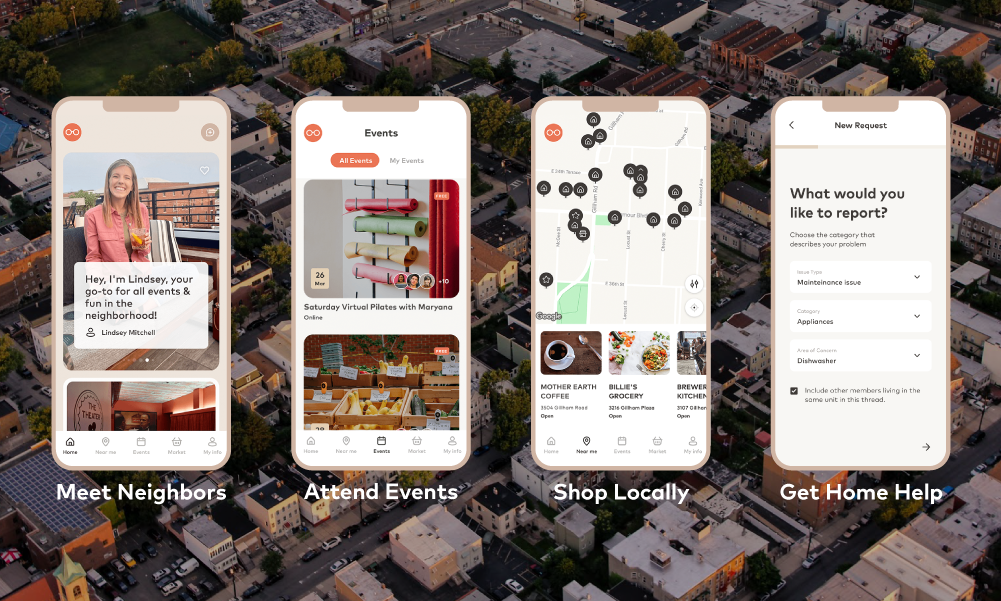
I’ve noticed an interesting phenomenon lately when chatting with various friends and colleagues in the business world. I’ll ask them to name the brand with the most buzzworthy product of the moment—with the revenue and cultural cachet to back it up—and again and again, I hear the word “Peloton.”
Now, this could simply be the result of everyone having been stuck inside for the past year, their main connection to the outside world through the screen. But here’s the twist that even the savviest business person seems to be missing in my (admittedly very unscientific) poll—the secret to Peloton’s sauce doesn’t really have all that much to do with its product (which is amazing, obviously)—but it has everything to do with its service.
This oversight is exactly the problem that I’m seeing in the real estate industry today. Real estate developers and landlords have traditionally focused on their offering as a simple transaction: Here’s four walls, decorate them as you like. We’ll be back in touch in a year. Oh, and call this number if something breaks. All very cut-and-dry, right? And for as long as humans can remember, that’s pretty much how it’s worked.
But the Millennial generation—great disrupters that they are—expect more. And the accelerated change that we’ve all experienced over the past year has only served to heighten that. Today’s customer, influenced as we all are (whether we like it or not) by Millennials, wants more than this transactional relationship. Sure, they want the value of their product—the Peloton, if you will—but they also have expectations in terms of its value over time—not just the bike, but the technology, content, access, and inspiration that the brand unlocks. For many of its core customers, Peloton doesn’t mean all that much without the access it provides to a Cody Rigsby or Hannah Frankson—and their community of fellow riders.
In terms of real estate, it’s about creating more mutually beneficial value in the agreement between landlord and tenant. While the industry struggles to keep up with this new customer mindset, Venn is leading change through its own model. As a company focused on strengthening connections between neighbors, Venn looks beyond the individual rental space—the Peloton —and instead invests in the neighborhood as an amenity. The company does this by providing resources both on- and offline to help neighbors feel a sense of belonging where they live, programming to help people connect and give back, and the services and spaces that make a modern, happy, healthy neighborhood.
At Venn, the service, not the product, is at the forefront of everything it does. When a Neighbor opens the Life at Venn app, for example, they’ll see several events listed that they might be interested in, hand-picked by their local Community Manager. This personalized approach puts the individual at the center of the experience, so they come to value and rely upon the service.
Dealing with tenant turnover is always tough on landlords, but Venn’s model is having a major impact—benefitting both neighbor and landlord. When Venn Neighbors participated in at least one of various “give back” events available to the community over the past year, they were 50% more likely to remain in their neighborhoods and put down roots. If they participated in more than one event, that number jumped to 90%. At a time when millions of Americans moved during the pandemic, mostly fleeing cities for more space, Venn saw a 37% reduction in people leaving their neighborhoods and a 20% jump in people moving in (Source: Venn’s “Annual Impact Report, 2020”).
For landlords who are future-focused and seeking that competitive edge, it’s important not to overlook these Millennial-driven shifts as just another fad. Instead, see them for what they are—lasting change. Consumers today are looking to extract more value from their transactions, including where they live. And they’re willing to pay more to get it. If that isn’t as motivating as seeing your name tick up the Peloton leaderboard—well, then you’re not as competitive as I am.
You can read more about Venn on The Real Deal here.



